Search IMG Library
YOUR SPECIALISM- See all
- Gastroenterology
- Microbiology
- Urology
- Rheumatology
- Stroke Medicine
- Ophthalmology
- Oncology
- Neurology
- Histopathology
- Haematology
- ENT Surgery
- Acute Medicine
- Anaesthetics
- Respiratory
- Dermatology
- Geriatrics
- Radiology
- Surgery
- Paediatrics
- Psychiatry
- Emergency Medicine
- Critical Care & ICU
- General Medicine
276 blogs found
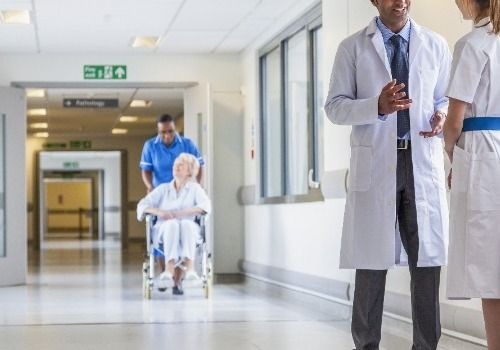
Revised Offer for SAS Doctors in England
Revised Offer for SAS Doctors in England
IMG's aspiring to work in the UK NHS... We've got some thrilling news to share with you. The British Medical Association (BMA) is poised to unveil a revised and final offer to SAS (Specialty and Associate Specialist) doctors in England.
This update marks a significant step forward in addressing the needs and concerns of SAS doctors, ensuring fair compensation and improved working conditions. The proposed offer, set to be presented by the BMA, holds the promise of enhancing the professional experience for SAS doctors across England.
As a company dedicated to assisting doctors in securing rewarding careers in the NHS, we understand the importance of staying informed about these developments. We're committed to keeping you updated on any changes that could impact your journey to becoming a part of the UK healthcare system.
Stay tuned for more details on the revised offer for SAS doctors, as we continue to keep you in the loop about the latest updates in the UK healthcare sector. Exciting opportunities await those looking to embark on a fulfilling medical career in the NHS, and we're here to support you every step of the way.
Next steps
The BMA will put this offer to its members with voting to take place between 31 May to 14 June. Strike action will continue to be paused during this time. Further information on full aspects of the deal will be made available in due course.
For more information and updates, keep an eye on our website and social media channels.
Additional infomation
Sources
Read the full article about the revised offer for SAS doctors in England
Getting started
NHS Trusts can interpret the NHS consultant pay scales above and an international doctor’s experience in different ways, so use this blog as a guideline for understanding what you may be eligible for when coming to work in the NHS.
Your IMG Consultant is happy to assist with any negotiations related to your job plan to ensure your experience is taken into account.
For more information on NHS doctor benefits and pay arrangements in the UK, take a look at our IMG Resources library.
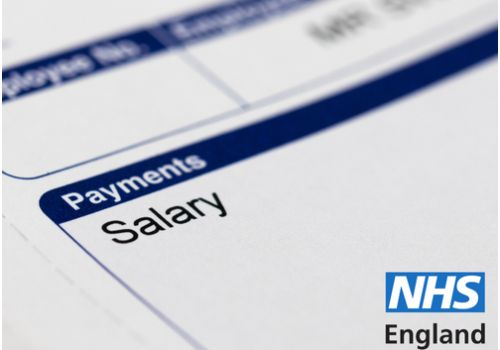
A guide to living expenses for an NHS employee
Navigating the financial landscape as an NHS employee, understanding various aspects, from pension contributions to childcare costs and general living expenses. In this blog, we'll break down essential information to help you manage your finances effectively.
Pension Contributions:
As an NHS employee, you contribute 13.5% of your income to the NHS Pension Scheme, with the NHS topping this up by 20.6%. These contributions are tax-free, reducing your taxable income. You can access a portion of your pension pot at the age of 55, with the remainder available upon retirement.
Childcare Costs:
Childcare options such as after-school clubs are available at most UK schools, typically running from 3:00 pm to 6:15 pm. Costs range from £10 to £20 per day on average, and you can utilize the tax-free childcare scheme to save up to 20% (up to £2,000 annually) on these expenses. Budgeting around £2,000 to £3,000 per year for part-time childcare is advisable.
Rents and Bills:
The cost of living in the UK, including rents and bills, varies by location. For instance, in areas like Bournemouth and Poole, rent for a 2-bed flat or terraced house near the hospital might range from £1,200 to £1,400 per month. Additional monthly expenses, including council tax, utilities, and internet, can total around £1,750 to £1,800.
General Costs:
Budgeting for phone contracts, groceries, and transportation is essential. Phone contracts typically range from £10 to £20 per month, while groceries may cost around £350 to £400 monthly for a healthy balanced diet. Transportation expenses, including car ownership costs and fuel, should also be considered.
Navigating Financial Decisions:
Opting out of the NHS Pension Scheme to increase take-home pay may seem tempting, but it's generally not advisable. Earning above £100,000 annually can result in losing tax-free allowances and government childcare benefits. Pensions become increasingly valuable in managing taxable income, particularly for senior doctors and consultants.
Conclusion:
Managing finances as an NHS employee requires careful planning and consideration of various expenses, including pension contributions, childcare costs, rent, bills, and general living expenses. By understanding these financial aspects, you can make informed decisions to ensure financial stability and well-being throughout your career.
IMG Jobs
Search and find live NHS doctor jobs in the UK
IMG Resources
Read more useful articles on finding an NHS trust doctor job, pay scales & doctor’s salary in the UK, relocation and much more!
Get in Touch
Don’t hesitate to get in touch using the buttons above (and below) to discuss doctor job options in the NHS, including discussions regarding a typical doctor's salary in the UK and the most suitable hospital locations for you.
For regular news and updates, follow IMG Connect on social media using the links below:
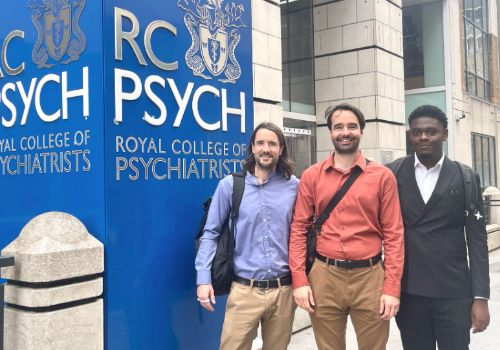
Exploring the Royal College of Psychiatrists’ new member's event 2024
As we anticipate the Royal College of Psychiatrists New Member's Ceremony for this year, let's explore what awaits attendees on this auspicious occasion!
As the new members assemble in the prestigious hall, they are met with enthusiastic applause and friendly faces. The ceremony commences with a captivating address by the president, establishing the ambience for the evening. Following this, the ceremony officially begins with a warm welcome from the president, followed by enlightening speeches from distinguished figures within the field.
Throughout the ceremony, voices from diverse specialities unite to honour the achievements of the latest additions to the Royal College of Psychiatrists. It's a jubilant affair, marked by inspirational narratives, heartfelt speeches, and a palpable sense of solidarity that fills the room. The event serves as a grand showcase, spotlighting the accomplishments and contributions of the newest members of the Royal College of Psychiatrists.
A pivotal moment of the ceremony is the presentation of certificates to the new members, symbolizing their dedication and perseverance. It's a proud moment not only for the individuals themselves but also for their families, whose unwavering support has been integral to their success. Upon attaining membership in the Royal College of Psychiatrists, individuals gain access to a wealth of resources and support networks.
To qualify for membership, individuals must fulfil specific criteria, including completing their core psychiatry training and successfully passing relevant examinations
Sources
https://www.rcpsych.ac.uk/members/rcpsych-ceremonies/new-members-ceremonies#:~:text=11%20and%2019%20October%202023%20and%201%20February%202024&text=Those%20who%20registered%20as%20Members,invited%20to%20attend%20these%20ceremonies.
Connect with us
Get in touch with us to find out more about The Royal College of Psychiatrists’ new member's event as an IMG! If you are attending, please join us on either the 21st or 28th of March or the 4th of April at the Leonardo Royal London Tower Bridge- opposite The Royal College of Psychiatrists building, for a celebratory drink!
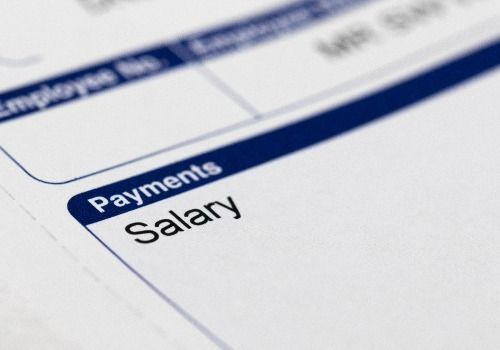
Understanding NHS Maternity Pay: Eligibility and Benefits
Navigating maternity pay can be a complex process, especially within the NHS. It's crucial to understand the eligibility criteria and the benefits you're entitled to under the NHS maternity pay scheme. Here's a comprehensive breakdown to help you navigate through this important aspect of maternity leave.
Eligibility Criteria:
To qualify for NHS maternity pay, you need to meet the following criteria:
1. Continuous Employment: You must have completed 12 months of continuous employment with the NHS. This period doesn't necessarily have to be with the same employer but should have no breaks exceeding three months.
2. Timing: By the time you reach 11 weeks before your expected week of childbirth, you should meet the continuous employment requirement and comply with the NHS notice requirements.
Understanding NHS Maternity Pay Structure:
Once you meet the eligibility criteria, you become entitled to a structured maternity pay scheme. Here's how it works:
1. Full Pay (8 Weeks): You'll receive eight weeks of full pay, which is subject to deduction for Statutory Maternity Pay (SMP) and Maternity Allowances.
2. Half-Pay (18 Weeks): Following the full pay period, you'll receive 18 weeks of half-pay, in addition to SMP and Maternity Allowances.
3. SMP or Maternity Allowance (13 Weeks): The final phase of maternity pay involves 13 weeks of receiving either SMP or Maternity Allowance. Maternity Allowance is paid at a fixed rate, which was £156.66 per week (April 2022 – April 2023) or 90% of your average earnings if lower.
Notification Requirements:
It's essential to adhere to the notification requirements set by the NHS. You must notify your employer at least 15 weeks before your due date. However, as a good practice, most individuals tend to inform their employers sooner, especially considering visible signs of pregnancy by that stage.
Final Thoughts:
Understanding the intricacies of NHS maternity pay is vital for expecting parents working within the NHS. By meeting the eligibility criteria and adhering to the notification requirements, you can ensure a smooth transition into maternity leave while availing of the benefits provided under the NHS maternity pay scheme.
In conclusion, navigating maternity pay within the NHS involves understanding eligibility criteria, the structure of maternity pay, and notification requirements. By being informed, expectant parents can make the most out of the benefits provided by their employer, ensuring a seamless transition into parenthood.
Reference - https://www.rcn.org.uk/Get-Help/RCN-advice/having-a-family#:~:text=It%20is%20likely%20you%20are,13%20weeks%20SMP
IMG Jobs
Search and find live NHS doctor jobs in the UK
IMG Resources
Read more useful articles on finding an NHS trust doctor job, pay scales & doctor’s salary in the UK, relocation and much more!
Get in Touch
Don’t hesitate to get in touch using the buttons above (and below) to discuss doctor job options in the NHS, including discussions regarding a typical doctor's salary in the UK and the most suitable hospital locations for you.
For regular news and updates, follow IMG Connect on social media using the links below:

9 great tips for learning English at home
As an overseas doctor, preparing for any English Language Test, whether you have chosen IELTS or OET, requires learning a huge amount.
IMGs have told us that one of the most effective ways to improve their general level of English, and help them on their journey to improving their test scores, is to study at home. So, we have put together a handy list of IMG Connect tips for studying for the English Language Tests at home, enjoy!
1. Start devouring podcasts
If you don’t already listen to podcasts, you should! They are great! You can access these at home, or on your commute to work. On your laptop, or even better, on your phone. If you have an Apple Iphone, simply open the podcast app already installed.
If you have Android, then try Stitcher, RadioPublic, Podbean or Pocket Casts.
Here are a few of the IMG Connect Team favourites:
In our time, science
The Infinite Monkey Cage
Today in Focus
Happy Place
Woman’s Hour
Ted Talks Health
Dan Snow’s History Hit
Thinking Allowed
BBC Inside Science
The Guardian’s Science Hour
Ted Talks Science and Medicine
Discovery
2. Speak to native English speakers
There really can be no substitute for regularly speaking to native English speakers. In most cities across the world there will be a community of English speakers, seek them out online or go say hello!
The IMG team are always happy to have a chat with you, so if you can’t find anyone, then give us a ring!
3. Speak to everyone!
We know that sometimes in this modern world, people would rather turn to their computers, but to learn English is to share English! Whether a colleague at work, a fellow student, a friend or family member, speaking English about a range of topics, medical and general, will help you to practice what you learn. Be sure to apply your recent learning of vocabulary and grammar.
It is widely known that students who speak and listen to people every day, learn quicker.
4. Get down with the kids… and watch YouTube!
There are millions of videos on YouTube, with thousands of great channels and shows to subscribe to. And of course, they are mostly all free! But don’t get stuck watching cute cats and dogs, stick to the task at hand – learning English!
IELTS and OET have their own official channels, full of useful resources.
Instead of randomly watching topics, think about your exams and search YouTube for suitable resources.
At IMG Connect we have found a few great suggestions to search for:
OET
Medical lectures
Nobel Lectures
Oxford University lectures – medical
Cambridge University medical lectures
IELTS
Parliamentary debates, UK
BBC, Sky, Channel four News
National geographic
Ted Talks
But don’t take our word for it, search for your own topics of interest.
5. Binge on your favourite movies (in English)
What could be better than sitting back after a day at work and watching a movie? Well, watching a movie and learning English at the same time! The rule here is to not just sit back and relax, you have to do some work too, put the subtitles on, and follow the dialogue. If you don’t understand, then pause, rewind and watch again.
Try to choose the right type of films, with lots of dialogue, so apologies to all those blockbuster fans, you may have to watch something else. Documentaries are excellent, with topics for everyone!
Listen to the way that words are said, how the actors or narrators stress the sounds. And copy it!
Even better, take a note of all new vocabulary, and when the film is finished, find out what they mean.
6. An article a day gets the doctor to the UK!
This doesn’t have to be test related, you can choose something that you really are interested in. It can’t all be boring!
Blogs, news outlets, organisations – you choose.
Reading an article a day, short or long, can dramatically improve your confidence.
7. Tweet, tweet, twooo!
Twitter isn’t just about a tweet, but there are plenty fantastic articles and up-to-date topics that are shared daily.
Find someone you are interested in and follow their articles.
Many news groups share excellent articles daily.
But remember don’t just read the headline!
8. Write as much as you can, to anyone you can.
Practicing writing English in different contexts will help you to cement your learning and get you into the habit of writing to a high level of structure and grammar.
You could write a blog online for your colleagues, this is free on WordPress. It is your blog, so you choose the topic!
Of course, you should practice writing the essays for the tests, but if you know anyone that reads English why not also write to them…in English of course!
9. Consider working with an accredited tutor
As an International Brand dedicated to helping international doctors to register with the GMC and find work in the NHS - we have lots of partnerships in place with trusted companies in many areas. One of these key areas is English Language Testing and IMG Connect works closely with a company called Specialist Language Courses. You can take a look at their website here.
Specialist Language courses work very professionally and are the UK's leading provider of online courses and tutoring. They are also one of the few accredited providers of OET and have provided consultation and guidance to the GMC on English language testing.
Success rates are 70% + for those who sign for their tutoring and you can receive a discount if introduced by IMG Connect.
Register with IMG Connect to request your discount on English Language Courses or get in touch with one of our IMG Consultants to discuss.
IMG Jobs
Search and find live NHS doctor jobs in the UK
IMG Resources
Read more useful articles on finding an NHS trust doctor job, pay scales & doctor’s salary in the UK, relocation and much more!
Get in Touch
Don’t hesitate to get in touch using the buttons above (and below) to discuss doctor job options in the NHS, including discussions regarding a typical doctor salary in the UK and the most suitable hospital locations for you.
For regular news and updates, follow IMG Connect on social media using the links below:
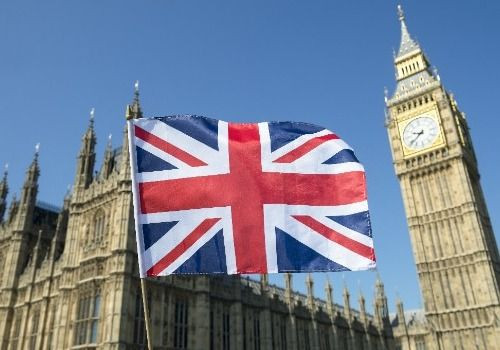
5 myths about Britain, IMGs should definitely ignore!
It is true that the UK is a weird and quirky place at times. But there are some myths about the UK that we have been asked about by overseas doctors (IMGs) that really should be ignored. Here are some of the most common…
5. The food is bland and horrible.
Wrong! Not only does the UK have some of the best chefs in the world it also boasts restaurants inspired by immigration and world cuisine. Ok, back in the 80’s it might not have been anything to shout about, but things have changed rapidly. Don’t just take our word for it, try the many Michelin starred restaurants or street food festivals and let your taste buds do the talking.
4. It never stops raining!
Wrong! Ok, well mostly wrong. Whatever you think of the British weather, it definitely is unique! Fascinating and frustrating, we love nothing more than to talk about the weather, and when you have been here for more than a day, you will join the daily discussion. As an island, we get the best and worst of weather, at least it isn’t boring! In fact, it is glorious!
3. Everyone speaks with a cockney accent.
Wrong! We might not be the biggest country in the world, but the cultural diversity is immense. Cockney might be the famous accent everyone knows from the movies, and let’s face it, it is fantastic, but from village to village, and region to region, everyone has their own way of saying things. The British accents woo the world, and define its people by pinpointing everyone to the nearest postcode. Centuries of immigration bringing wonderful accents from across the globe, which when coupled with Scots, Welsh, English and Northern Irish accents create a warm linguistic soundscape.
2. All Scottish people wear Kilts.
Wrong! Whilst everyone loves to see a Scotsman or Scotswoman in a Kilt, most Scots only wear this traditional outfit for special occasions, like Weddings or Burns Night. That said, the Scots are a stylish bunch and you can wear a kilt any day of the year!
1. Nobody speaks to each other on the London Underground (Tube).
This one might be a little true....but don’t fret! Londoners, like the rest of the Brits, are a welcoming bunch, and will chat with you over a cup of tea or a beer ;)
IMG Jobs
Search and find live NHS doctor jobs in the UK
IMG Resources
Read more useful articles on finding an NHS trust doctor job, pay scales & doctor’s salary in the UK, relocation and much more!
Get in Touch
Don’t hesitate to get in touch using the buttons above (and below) to discuss doctor job options in the NHS, including discussions regarding a typical doctor salary in the UK and the most suitable hospital locations for you.

14 tips for writing a doctor's CV
Regardless of what stage you are at in your medical career, a doctor's CV is the first opportunity you have to make the first impression you want to an NHS employer and secure your preferred job in the NHS.
When you consider that the average CV gets 10-15 seconds of attention it is clear how important it is to get your CV right and make it stand out. Follow our Top 14 Tips and be sure to give yourself the best opportunity of landing the interviews you want to.
Your CV tells the story of you and your career and at a glance and it should be clear why you are the best person for the role you are applying for.
Request our helpful CV template for GMC applications here.
14 general tips for writing a doctor CV:
1. Review and update.
By taking the time to regularly review and update your CV, it allows you to create a standard format that you can adapt for each position that you apply for, giving you the best chance at landing the interview you really want.
2. Keep up to date.
Modern medical CVs are reflective of the changing face of the profession. Keep up to date.
3. Keep it traditional.
If it works, don’t fix it. Using our template, follow the GMC guidelines on the layout and content of your CV.
If you are applying for a training programme, check the GMC requirements for example, applications for Specialist registration require a particular format.
4. Don’t write war and peace.
There is no prescribed length of a medical CV, but if you follow standard layouts, order by relevance and write succinctly, a standard CV could be between 2 – 8 pages long. Remember though, it can be as long as it needs to be!
5. Presentation is vital.
Use a clear font and size (we recommend 12-point Arial, Calibri or Times), a clear layout, avoid large chunks of text and use bullet points.
6. Keep it concise.
Adopt a style of writing that is professional, using short and simple sentences - use active words when referring to skills and focus on positive aspects.
7. Match to the job description.
Prioritise the section of your CV that matches the job at the top, so it's seen first. Reprioritise the least relevant content to appear further down each section.
Highlight elements that match the specific job description and person specification.
8. Do not exaggerate.
There is no need to exaggerate any information on your CV. And remember you don’t need to include everything you have done in your career, if it is not relevant to the application, consider if you need to include it at all. There will be plenty of opportunity at interviews to get this information across.
9. Align with the trust or hospital values.
Your CV and interview should demonstrate that your personal values and behaviours align with the NHS values outlined in the NHS Constitution. In a nutshell these are your motivation and commitment to the NHS and the role, your ability to work in multi-professional teams, the central importance of the patient's experience.
10. No need to waste paper.
Don’t include a cover sheet or index. You want the reader to see the main page straight away, which shows who you are, what qualifications you have and that you are suitable for the vacancy.
11. Use a spell checker!
To ensure no spelling mistakes, use a spell checker. One of the main reasons a CV will be rejected is incorrect spelling.
12. Proofread.
Competition means that you need to prepare an error free CV. Proofreading is crucial, and spelling checks on your computer will not suffice. Take time to conduct a thorough examination looking for possible errors or flaws in format, sentence structure, content or layout.
13. Get someone else to proofread.
Ask a peer or senior colleague to proofread and get their feedback. Don’t forget to act upon their feedback and make any necessary changes, before asking them to check again, just in case.
14. Get us to proofread!
CLICK HERE & SEND YOUR CV TO US FOR A FREE AND QUICK CV REVIEW
IMG Jobs
Search and find live NHS doctor jobs in the UK
IMG Resources
Read more useful articles on finding an NHS trust doctor job, pay scales & doctor’s salary in the UK, relocation and much more!
Get in Touch
Don’t hesitate to get in touch using the buttons above (and below) to discuss doctor job options in the NHS, including discussions regarding a typical doctor salary in the UK and the most suitable hospital locations for you.
Follow us on social media for news and updates on GMC registration, the Royal College and NHS through the links below:

7 Important Communities & Groups for an IMG
Communities are a wonderful thing and feeling part of a community is vital to any doctor and their family looking to make a new home for themselves in the UK.
In this article we will look at seven of the communities that exist in both professional and social circle, which can help you to be happy in your new NHS job and UK home.
Study preparations groups
Whether it's preparing for PLAB, Royal College or IELTS exams, having friends or colleagues to revise with and push each other is incredibly important.
You can find WhatsApp groups for the specific exams on our IMG Community Facebook page and we highly recommend joining a study group if you have not already.
Any friends and family in the UK
Make the most of any contacts you already have. Make sure to get in touch with any friends or relations let them know your relocation plans. They may give you some trusted hints and tips for the area you are moving to, or just make sure you are looked after from the moment you touch down.
Either way, building friend and family circles around you is very important.
Facebook groups and the IMG Community
There are many Facebook groups out there geared towards helping doctors like yourself trying to work as a doctor in the UK.
With that in mind, IMG Connect runs a vetted Facebook community that covers all the topics that you might need help or support on. This includes exam support, registration guidance, first-hand advice and knowledge on hospitals and their departments, relocation support, schooling etc. This list goes on and on!
Whatever question or help you might need, you can ask us in private or publicly to the community page, you will usually have a response in minutes.
By joining the IMG Community Facebook group you will be immediately in touch with thousands of people in very similar scenarios to yourself.
Colleagues and peers in your department
The relationships you hold with the people at work are hugely important; you will spend roughly 60-70% of your day working with them after all!
Make sure to involve yourself with your department, the hospital as a whole and become part of the trust’s wider community.
Understanding with their values whilst engaging socially with your colleagues will go a long way to ensuring you are happy and content in your day-to-day job and make you a much better NHS doctor.
GMC workshops and events
As the GMC knows, adapting to a new healthcare system is hard for any doctor, regardless of experience.
The GMC’s free Welcome to UK Practice workshop is designed to help doctors new to the NHS. By offering guidance on GMC and UK medical ethics, it aims to give you the confidence and assurance to make the right choices in difficult ethical scenarios.
These are of course great ways to connect with doctors in similar situations to your own, allowing you to make new friends & contacts with other doctors new to the NHS like yourself.
Royal College courses, workshops and events
As with the GMC, Royal Colleges in the UK run a wide variety of professional and cultural events that are often free to attend.
Take them up on opportunities to further your learning or meet interesting and influential people in your specialty! Whether it’s an art exhibition hosted by your Royal College or an amazing talk by a field specialist, being a member and part of Royal College community is a valuable thing.
The local community you move to
Anyone and everyone can get involved in your community. It doesn’t matter who you are, how old you are, what you believe in; there will always be something there for you. What you get in return is both priceless and invaluable whatever stage of life you are at: Meeting new people – building new friendships, improving your English, experiencing different cultures, improving relations between different communities in your area, building confidence, self-esteem and giving structure to life in the UK.
Get involved in your local school, charities and parks, or look online for groups, activities and events.
And if you do it right… helping people whilst having fun!
IMG Jobs
Search and find live NHS doctor jobs in the UK
IMG Resources
Read more useful articles on finding an NHS trust doctor job, pay scales & doctor’s salary in the UK, relocation and much more!
Get in Touch
Don’t hesitate to get in touch using the buttons above (and below) to discuss doctor job options in the NHS, including discussions regarding a typical doctor salary in the UK and the most suitable hospital locations for you.
For regular news and updates, follow IMG Connect on social media using the links below:

OET - FAQs
Doctors looking to register with the GMC and find a job in the NHS will be required to take either the OET or IELTS exam. Here we answer some FAQs about the OET exam.
OET can be challenging and, without proper preparation, it is not uncommon for doctors to fail at their first attempt.
So, to help make sure you are as prepared as possible before sitting the exam, we have answered the most common FAQs asked by an overseas doctor:
What is the OET?
How is the OET different from IELTS?
What regulatory bodies accept OET?
What test should I take?
Is OET a better option than IELTS?
Is the OET recognised by the General Medical Council (GMC)?
What results do I need for GMC registration?
How much does it cost?
Should I prepare for the exam?
Should I spend money on preparing?
Where can I find online study materials?
How do I register?
Where can I take the test?
Can I change my test date?
Can I take a re-sit?
What is the OET?
OET stands for Occupational English Test. The OET is an English Language Test created specifically for healthcare professionals.
The OET exam assesses the language communication skills of healthcare professionals who wish to register and practice in the UK, or other English-speaking countries.
It tests your English levels in four subtests: Reading, Writing, Speaking & Listening.
How is the OET different from IELTS?
OET is a language assessment designed for healthcare professionals, testing your English Language skills in a medical context.
IELTS is not specific to the healthcare profession, it is taken by professionals from all industries. So, the topics covered are more general.
Both test four areas of English Language skills: reading, writing, speaking and listening.
What regulatory bodies accept OET?
The good news is that if you choose the OET exam, recent changes to the rules as of the 1st October 2019, means that only one test now required for both UK registration and visa purposes. The OET exam is now accepted by both the GMC and the UK Home Office.
What test should I take?
Neither exam is easier than the other. Both IELTS and OET Medicine show you have an advanced level in English. It really is up to you!
You may find OET simpler to understand as it is healthcare related and tests the language you use in daily practice.
The same can be said about IELTS, you may find the general nature of the topics more suited to you.
Is OET a better option than IELTS?
There is no one option better than the other, both are recognised qualifications by the GMC. The most important thing to decide is which suits your needs the most.
Your decision may be based on factors such as:
the format and content of the different tests
regularity with which test sessions are held
locations of test centres
test fees
regulatory bodies that accept the test for applications
Is the OET recognised by the General Medical Council (GMC)?
Yes, the GMC recognises OET for overseas-trained doctors for registration purposes. For the GMC to accept your OET certificate it must show that you took the medicine sub-tests.
What results do I need for GMC registration?
For the GMC to accept your OET certificate it must show:
You took the medicine version of the test.
You attained at least a grade 'B' in each testing area (speaking, listening, reading and writing) or 350 points in total.
What is the test format?
OET has four parts:
Listening (45 minutes)
Reading (60 minutes)
Writing (45 minutes)
Speaking (20 minutes)
The total test time is approximately 3 hours.
How much does it cost?
Test fees are AUD $587 (approx. £329 based on November 2023 exchange rate).
Should I prepare for the exam?
Yes, exam preparation is crucial to scoring highly in the test. You might feel like you already have a good level of English, good enough to pass the tests.
But IMGs keep telling us that no matter what level of English they have, it is always better to prepare. The test consists of very specific content, so specific test skills are required.
Should I spend money on preparing?
Whilst not essential, we recommend that you seek further support. This could be via online tutorials, 1 - 1 teaching, or longer course-based learning. There are lots of OET tutors available online.
That said, there are also loads of ways that you can improve your English for free, at home and in your own time.
Where can I find online study materials?
With thousands of useful websites available, it can be tricky to decide where to start. We recommend the OET Preparation Portal. Here you will discover official resources, some for free!
For example, you can expect to find:
sample practice tests
masterclass videos with an OET preparation expert
tips to improve your test performance
online preparation Course
practice books
How do I register?
Register online here.
The OET have a portal for all applicants, called myOET. This lets you apply for tests, view your results, and create a profile.
Where can I take the test?
OET is available at more than 115 locations in 40 countries, with 14 test dates per year.
Be sure to choose the correct date and location when you apply.
You can find a test date and venue here.
Can I change my test date?
Yes, you can change the test date any day prior to the original test date booked. Please note, no refund is available, and an administration fee will apply to book a new date. The cost of deferring depends on when you decide to defer:
Administration cost before application closing date is $120 (approx. £67 at the point of writing)
Administration cost after applications closing date passes is $200 (approx. £110 at the point of writing)
No refund is available for cancellations.
Can I take a re-sit?
Yes, you can book a new test at any time, however this will be at further personal cost.
Consider working with an accredited tutor
As an International Brand dedicated to helping international doctors to register with the GMC and find work in the NHS - we have lots of partnerships in place with trusted companies in many areas. One of these key areas is English Language Testing and IMG Connect works closely with a company called Specialist Language Courses. You can take a look at their website here.
Specialist Language courses work very professionally and are the UK's leading provider of online courses and tutoring. They are also one of the few accredited providers of OET and have provided consultation and guidance to the GMC on English language testing.
Success rates are 70% + for those who sign for their tutoring and you can receive a discount if introduced by IMG Connect.
Register with IMG Connect to request your discount on English Language Courses or get in touch with one of our IMG Consultants to discuss.
IMG Jobs
Search and find live NHS doctor jobs in the UK
IMG Resources
Read more useful articles on finding an NHS trust doctor job, pay scales & doctor’s salary in the UK, relocation and much more!
Get in Touch
Don’t hesitate to get in touch using the buttons above (and below) to discuss doctor job options in the NHS, including discussions regarding a typical doctor salary in the UK and the most suitable hospital locations for you.
Follow us on social media for news and updates on GMC registration, the Royal College and NHS through the links below:

Types of GMC Registration
The General Medical Council’s medical register is a full list of all the doctors qualified to work in the UK. Within this, there are different types of registration which doctors must hold to work in different posts in the UK.
All practicing physicians must hold one of these types of registration with a license to practice.
In this article we will discuss the following:
Provisional Registration
Full Registration
Specialist Registration
GP Registration
IMG Tips
1. Provisional Registration
The purpose of provisional registration is to allow medical graduates to complete an approved internship (FY1). After this, trainees will receive a certificate of experience with which they can apply for full registration.
Provisional registration can be held for a maximum of three years and 30 days (1,125 days) only, which would be enough time within which to complete a 12-month internship. This registration will expire after the allotted time, and you will be removed from the register, however, more time can be provided, and you can find out whether you will be eligible here.
What roles can I take with provisional registration?
With provisional registration, the only service post you are able to take is an FY1 service post, other than an approved UK FY1 programme.
Who can apply for provisional registration?
If you are eligible for full registration, you cannot apply for provisional registration.
Applications for provisional registration will be considered from:
UK medical graduate who completed their medical degree at a UK university
Doctors who graduated from outside the UK with an acceptable primary medical qualification (PMQ) and have passed the Professional and Linguistic Assessments Board (PLAB), but have not completed an internship
Doctors who qualified within certain European countries but do not hold the accompanying certificate required to complete their relevant European qualification – you can see a full list of these countries here.
2. Full Registration
Doctors require full registration to work in unsupervised medical practice in the NHS, UK private practice, or to move onto the second year of their internship (FY2) in an approved training programme require a full license to practice.
What roles can I take with full registration?
With full registration, doctors can take up any post aside from GP posts and substantive consultant posts.
Who can apply for full registration?
There are certain criteria you must meet before you are eligible for full registration:
1. Completed the first year (FY1) of the Foundation Programme in the UK
2. Be a Swiss or UK national (or benefit from enforceable community rights) and have either:
A formal qualification listed in The Directive on Recognition of Professional Qualifications; OR
An acceptable primary medical qualification from outside the EEA (which has been recognised in Switzerland) with evidence of an acceptable pattern of experience
3. Be an international medical graduate (IMG) with an acceptable PMQ, and enough clinical experience to practice medicine in the UK – you can do this in one of 5 ways:
A pass in the PLAB test
Sponsorship by a GMC approved sponsor
An acceptable postgraduate qualification or overseas licensing exam
Relevant European Qualification (REQ)
Eligibility for entry onto the Specialist or GP register
Full registration does not have a time limit, but doctors should note that they are required to go through a revalidation process every five years to avoid the license to practice being withdrawn.
You can read more about the routes to GMC Registration through our IMG Resources library.
3. Specialist Registration
The specialist register is an online list of doctors who are eligible to work as fixed term, honorary or substantive consultants in the NHS, excluding foundation trusts.
If a doctor is on the Specialist Register, it will say so as part of their status on the register, and you will be able to see the specialties (and sub-specialties) they are qualified in, as well as the date they joined the specialist register in each specialty.
Types of Specialist Registration
There are three types of certificates issued by the GMC, and the type of certificate you will receive at the end of your training defines which training route you are on.
You can read more about Specialist Registration for IMGs here.
What roles can I take with Specialist registration?
Doctors who are on the Specialist Register can take up permanent or substantive consultant positions.
Who can apply for Specialist registration?
Eligibility for Specialist Registration depends on your nationality, qualifications and experience. To meet the minimum eligibility requirements to apply you must have either:
A specialist qualification in the specialty you’re applying in
OR
At least six months continuous specialist training in the specialty you’re applying in
You’ll need to provide evidence of how you’re eligible as part of your application. This could be a copy of your qualification or evidence of your employment. In your application you must show that you meet the requirements of the CCT curriculum in your specialty.
4. GP Registration
GP Registration is a requirement for any doctor who wishes to be eligible for appointment to a general practitioner (GP) position in the UK.
Please note that unlike in many countries, GPs in the UK are family and community medicine specialists and if you are an IMG general physician, you would need to apply for full registration, not GP registration.
What roles can I take with GP registration?
Doctors who are on the GP Register can take up posts as General Practitioners in the UK. As well as being on the GP Register, you’ll need to complete a number of other processes before you can start work as a GP in the UK. You'll need to join a Performers List and an Induction or Returner Scheme. You can read more about this here.
Who can apply for GP registration?
Doctors may be eligible for entry onto the GP Register if you have a relevant European GP qualification. You can check which GP qualifications are accepted on the GMC’s evidence of qualifications page. You must also check your qualification is on the list of relevant European qualifications, and that:
The title of it is exactly the same as the one in the list
AND
The qualification was issued on or after the reference date listed.
#IMG Tips
Use the GMC website – there are many useful resources on the GMC website, including a very helpful registration route finder to help you determine which registration you should apply for.
Research/ think about the types of evidence you will need and make a plan for your application, particularly if you will have to sit any exams.
If you want to contact our specialists use our Candidate Portal today!
So there it is, the different types of GMC registration in a nutshell. This is important to understand, particularly for IMGs looking to relocate to the UK and find work in the NHS. If you have any further questions about GMC registration or your route to the UK, please get in touch with us here.
Follow us on social media through the links below for regular news and updates on the Royal Colleges, relocating to the UK and working in the NHS:
Types of GMC Registration
The General Medical Council’s medical register is a full list of all the doctors qualified to work in the UK. Within this, there are different types of registration which doctors must hold to work in different posts in the UK.
All practicing physicians must hold one of these types of registration with a license to practice.
In this article we will discuss the following:
Provisional Registration
Full Registration
Specialist Registration
GP Registration
IMG Tips
1. Provisional Registration
The purpose of provisional registration is to allow medical graduates to complete an approved internship (FY1). After this, trainees will receive a certificate of experience with which they can apply for full registration.
Provisional registration can be held for a maximum of three years and 30 days (1,125 days) only, which would be enough time within which to complete a 12-month internship. This registration will expire after the allotted time, and you will be removed from the register, however, more time can be provided, and you can find out whether you will be eligible here.
What roles can I take with provisional registration?
With provisional registration, the only service post you are able to take is an FY1 service post, other than an approved UK FY1 programme.
Who can apply for provisional registration?
If you are eligible for full registration, you cannot apply for provisional registration.
Applications for provisional registration will be considered from:
UK medical graduate who completed their medical degree at a UK university
Doctors who graduated from outside the UK with an acceptable primary medical qualification (PMQ) and have passed the Professional and Linguistic Assessments Board (PLAB), but have not completed an internship
Doctors who qualified within certain European countries but do not hold the accompanying certificate required to complete their relevant European qualification – you can see a full list of these countries here.
2. Full Registration
Doctors require full registration to work in unsupervised medical practice in the NHS, UK private practice, or to move onto the second year of their internship (FY2) in an approved training programme require a full license to practice.
What roles can I take with full registration?
With full registration, doctors can take up any post aside from GP posts and substantive consultant posts.
Who can apply for full registration?
There are certain criteria you must meet before you are eligible for full registration:
1. Completed the first year (FY1) of the Foundation Programme in the UK
2. Be a Swiss or UK national (or benefit from enforceable community rights) and have either:
A formal qualification listed in The Directive on Recognition of Professional Qualifications; OR
An acceptable primary medical qualification from outside the EEA (which has been recognised in Switzerland) with evidence of an acceptable pattern of experience
3. Be an international medical graduate (IMG) with an acceptable PMQ, and enough clinical experience to practice medicine in the UK – you can do this in one of 5 ways:
A pass in the PLAB test
Sponsorship by a GMC approved sponsor
An acceptable postgraduate qualification or overseas licensing exam
Relevant European Qualification (REQ)
Eligibility for entry onto the Specialist or GP register
Full registration does not have a time limit, but doctors should note that they are required to go through a revalidation process every five years to avoid the license to practice being withdrawn.
You can read more about the routes to GMC Registration through our IMG Resources library.
3. Specialist Registration
The specialist register is an online list of doctors who are eligible to work as fixed term, honorary or substantive consultants in the NHS, excluding foundation trusts.
If a doctor is on the Specialist Register, it will say so as part of their status on the register, and you will be able to see the specialties (and sub-specialties) they are qualified in, as well as the date they joined the specialist register in each specialty.
Types of Specialist Registration
There are three types of certificates issued by the GMC, and the type of certificate you will receive at the end of your training defines which training route you are on.
You can read more about Specialist Registration for IMGs here.
What roles can I take with Specialist registration?
Doctors who are on the Specialist Register can take up permanent or substantive consultant positions.
Who can apply for Specialist registration?
Eligibility for Specialist Registration depends on your nationality, qualifications and experience. To meet the minimum eligibility requirements to apply you must have either:
A specialist qualification in the specialty you’re applying in
OR
At least six months continuous specialist training in the specialty you’re applying in
You’ll need to provide evidence of how you’re eligible as part of your application. This could be a copy of your qualification or evidence of your employment. In your application you must show that you meet the requirements of the CCT curriculum in your specialty.
4. GP Registration
GP Registration is a requirement for any doctor who wishes to be eligible for appointment to a general practitioner (GP) position in the UK.
Please note that unlike in many countries, GPs in the UK are family and community medicine specialists and if you are an IMG general physician, you would need to apply for full registration, not GP registration.
What roles can I take with GP registration?
Doctors who are on the GP Register can take up posts as General Practitioners in the UK. As well as being on the GP Register, you’ll need to complete a number of other processes before you can start work as a GP in the UK. You'll need to join a Performers List and an Induction or Returner Scheme. You can read more about this here.
Who can apply for GP registration?
Doctors may be eligible for entry onto the GP Register if you have a relevant European GP qualification. You can check which GP qualifications are accepted on the GMC’s evidence of qualifications page. You must also check your qualification is on the list of relevant European qualifications, and that:
The title of it is exactly the same as the one in the list
AND
The qualification was issued on or after the reference date listed.
#IMG Tips
Use the GMC website – there are many useful resources on the GMC website, including a very helpful registration route finder to help you determine which registration you should apply for.
Research/ think about the types of evidence you will need and make a plan for your application, particularly if you will have to sit any exams.
If you want to contact our specialists use our Candidate Portal today!
So there it is, the different types of GMC registration in a nutshell. This is important to understand, particularly for IMGs looking to relocate to the UK and find work in the NHS. If you have any further questions about GMC registration or your route to the UK, please get in touch with us here.
Follow us on social media through the links below for regular news and updates on the Royal Colleges, relocating to the UK and working in the NHS:
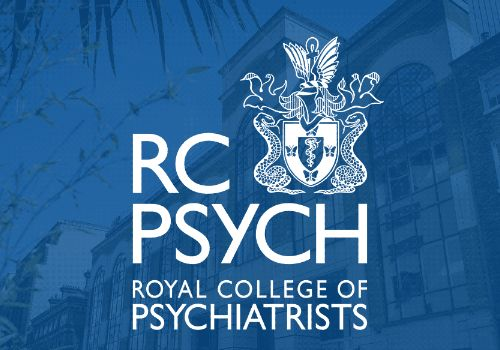
Join us as we delve into the world of the Royal College of Psychiatrists’ new member's event
As the Royal College of Psychiatrists New Member's Ceremony is coming up, we wanted to delve into what you could expect on the day!
As the new members gather in the grand hall, they are greeted with warm applause and welcoming smiles. The ceremony begins with a keynote by the president, setting the tone for the evening, the ceremony then kicks off with a warm welcome by the president, followed by speeches from prominent figures in the field.
During the ceremony, voices from various specialities come together to celebrate the accomplishments of the newest members of the Royal College of Psychiatrists. It is a joyous occasion filled with speeches, inspirational stories, and a sense of camaraderie that resonates throughout the room. The ceremony is a grand event that highlights the achievements and contributions of the newest members of the Royal College of Psychiatrists.
One of the highlights of the ceremony is the awarding of certificates to the new members. This moment serves as a tangible recognition of their hard work and commitment. It is a proud moment for both the individuals and their families, who have supported them throughout their journey. Upon becoming members of the Royal College of Psychiatrists, individuals gain access to a wide range of resources and support systems.
To be eligible for membership, individuals must meet certain criteria, including completing their core psychiatry training and passing the relevant examinations.
Sources
https://www.rcpsych.ac.uk/members/rcpsych-ceremonies/new-members-ceremonies#:~:text=11%20and%2019%20October%202023%20and%201%20February%202024&text=Those%20who%20registered%20as%20Members,invited%20to%20attend%20these%20ceremonies.
Connect with us
Get in touch with us to find out more about The Royal College of Psychiatrists’ new member's event as an IMG! If you are attending, please join us on either the 11th or 19th of October at the Leonardo Royal London Tower Bridge- opposite The Royal College of Psychiatrists building, for a celebratory drink!